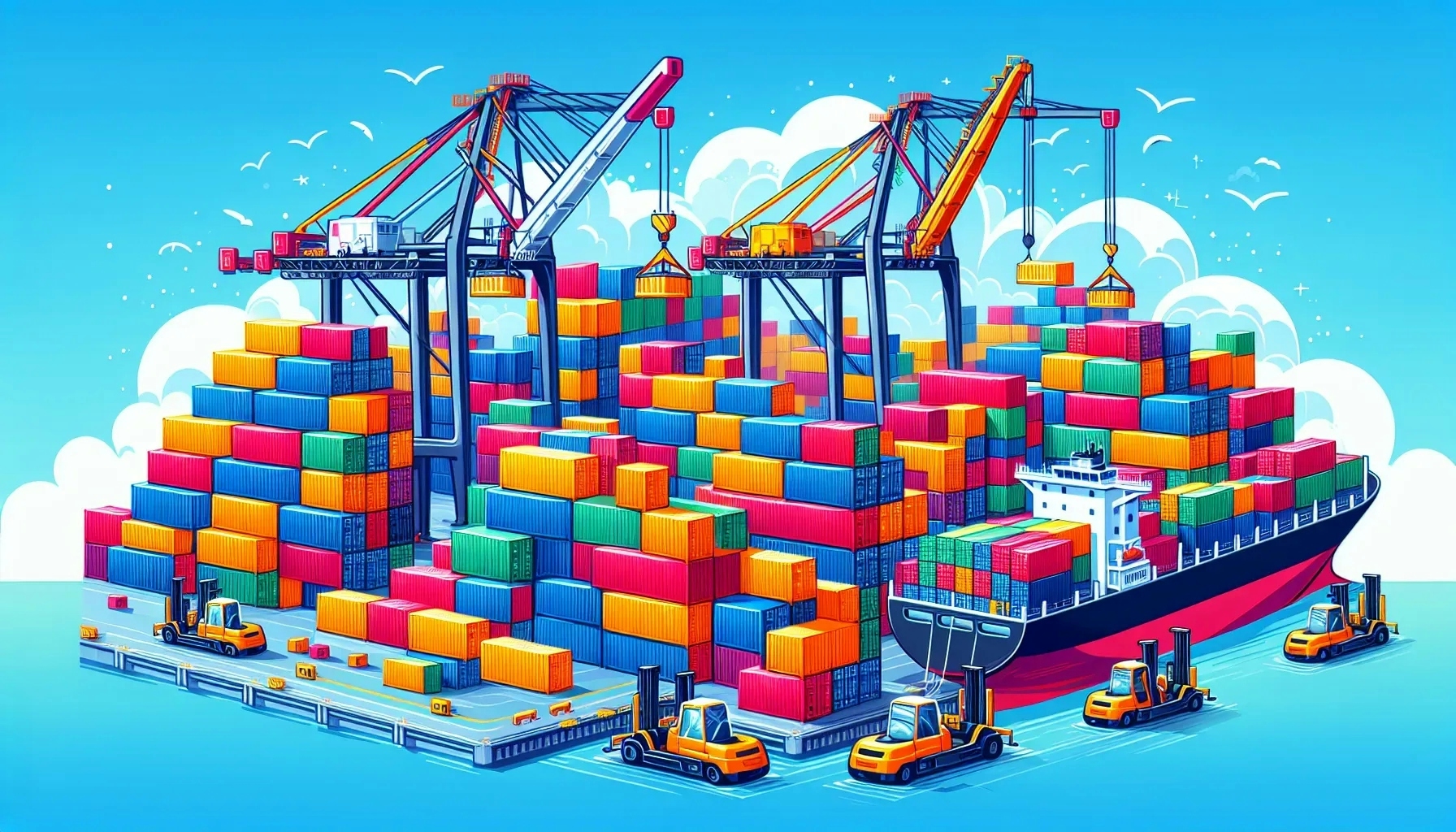Welcome to our deep dive into the ever-evolving world of the global shipping market. This comprehensive analysis will shed light on the latest trends, the factors driving these changes, and the potential implications for businesses and consumers alike. We'll explore the impact of technology, environmental concerns, and shifts in global trade policies, among other topics. So, let's set sail on this journey of discovery.
Technological Innovations Reshaping the Shipping Industry
The advent of technology has brought about a significant transformation in the global shipping market. Digitalization is at the forefront of this revolution. Companies are leveraging advanced technologies to streamline operations, enhance efficiency, and reduce costs.
Artificial Intelligence (AI) and Machine Learning (ML) are playing pivotal roles in this transformation. These technologies are helping companies predict demand, optimize routes, and manage inventory more effectively. Moreover, they are enabling the automation of various processes, thereby reducing human error and increasing productivity.
Blockchain technology is another game-changer. It's providing a secure and transparent platform for transactions, thereby enhancing trust among stakeholders. It's also reducing paperwork and speeding up the process of customs clearance.
Internet of Things (IoT) devices are also making a significant impact. They are enabling real-time tracking of shipments, providing valuable data for decision-making, and enhancing the security of goods.
Despite these advancements, challenges persist. Cybersecurity threats are a major concern, given the increasing reliance on digital platforms. Companies must invest in robust security measures to protect their systems and data.
The Green Shift in Shipping
Environmental sustainability is another key trend in the global shipping market. With growing awareness about climate change, companies are under pressure to reduce their carbon footprint.
Many are turning to cleaner fuels to power their vessels. The use of liquefied natural gas (LNG) is on the rise, given its lower emissions compared to traditional fuels. Some companies are also exploring the potential of biofuels and hydrogen.
Energy-efficient ship designs are another focus area. Companies are investing in research and development to create vessels that consume less fuel and emit fewer greenhouse gases.
Moreover, companies are adopting various strategies to manage waste more effectively. These include recycling, waste-to-energy conversion, and the use of biodegradable materials.
However, the transition to green shipping is not without challenges. High costs, regulatory hurdles, and technological limitations are some of the obstacles that companies must overcome.
Changing Trade Policies and Their Impact
Trade policies are a major determinant of trends in the global shipping market. Changes in these policies can have far-reaching implications for the industry.
The ongoing trade war between the U.S. and China, for instance, has led to significant shifts in trade flows. Many companies are diversifying their supply chains to mitigate risks, leading to changes in shipping routes and volumes.
Brexit is another significant development. It has created uncertainty around trade agreements and customs procedures, impacting shipping operations between the UK and the EU.
Moreover, the rise of protectionist policies in various countries is posing challenges for the shipping industry. These policies are leading to increased trade barriers, impacting the free movement of goods.
On the other hand, the signing of new free trade agreements is creating opportunities for the industry. These agreements are opening up new markets, leading to increased shipping volumes.
The Impact of COVID-19 on the Shipping Industry
The COVID-19 pandemic has had a profound impact on the global shipping market. The industry has faced numerous challenges, from disruptions in supply chains to changes in consumer behavior.
The lockdown measures implemented in various countries led to a slowdown in manufacturing activities, resulting in reduced demand for shipping services. However, the surge in e-commerce due to the restrictions on physical retail created new opportunities for the industry.
The pandemic also highlighted the importance of resilience and flexibility in supply chains. Companies are reevaluating their strategies to ensure they can respond effectively to future disruptions.
Moreover, the crisis has accelerated the digital transformation of the industry. The need for contactless operations has led to increased adoption of digital platforms and technologies.
The Future of the Global Shipping Market
Looking ahead, several trends are likely to shape the future of the global shipping market.
Technology will continue to play a crucial role. The adoption of AI, ML, blockchain, and IoT is expected to increase, driving further efficiency and transparency in the industry.
Sustainability will remain a key focus. Companies will need to intensify their efforts to reduce emissions and waste, driven by regulatory pressures and consumer demand.
Trade policies will continue to influence the industry. The resolution of ongoing trade disputes and the signing of new trade agreements could lead to shifts in shipping volumes and routes.
The lessons learned from the COVID-19 pandemic will also shape the industry's future. Companies will need to build more resilient and flexible supply chains to withstand future shocks.
Navigating the Waves of Change
Navigating the waves of change in the global shipping market requires a deep understanding of the trends and their implications. Companies must stay abreast of technological advancements, regulatory changes, and shifts in consumer behavior.
Investing in technology can help companies enhance efficiency, reduce costs, and stay competitive. However, they must also address the associated challenges, such as cybersecurity threats.
Embracing sustainability is not just a moral obligation but also a business imperative. Companies that fail to adapt to the green shift risk losing their competitive edge and damaging their reputation.
Understanding the impact of trade policies on the industry is crucial. Companies must be prepared to adjust their strategies in response to changes in these policies.
Finally, the experience of the COVID-19 pandemic underscores the importance of resilience and flexibility. Companies must build supply chains that can withstand shocks and adapt to changing circumstances.
Charting the Course Forward in the Global Shipping Market
As we navigate the complex waters of the global shipping market, it's clear that the industry is in a state of flux. Technological innovations, environmental concerns, changing trade policies, and the impact of the COVID-19 pandemic are all reshaping the landscape. Companies that understand these trends and adapt accordingly will be well-positioned to thrive in the future. As we continue to monitor these developments, we look forward to sharing more insights and analyses to help you stay ahead of the curve.

